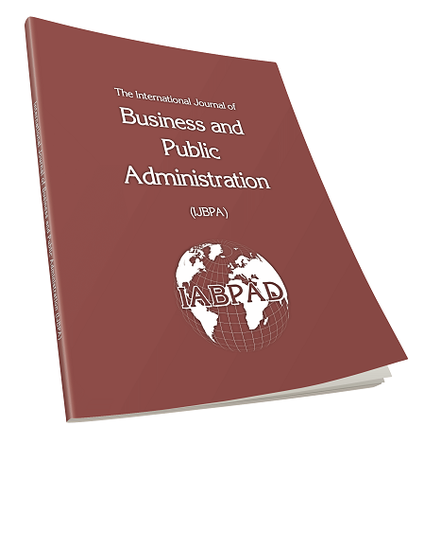
Article
Perceived Work Differences Associated with the Use of Mobile Versus Wired Technologies
International Journal of Business and Public Administration
(2008)
Abstract
It’s clear that the emergence of mobile mediums have provided increased communication and flexibility. While flexibility and autonomy increase, so do the potential vulnerabilities related to privacy, security, as well as legal implications. With the prevalence of mobile technologies it is imperative that organization develop corporate policies that facilitate the proper use of mobile technologies. While the prevalence and emergence of mobile technologies are moving us forward at high speeds, policies pertaining to the use of these technologies is unfortunately not keeping pace. It should be made clear that companies that utilize data from mobile devices should be for business purposes only, and retrieved in a fashion which is lawful and fair. This paper also researches the effects of demographics in the perceptions associated with mobile technologies. This is also taken further in terms of studying the use of mobile devices in terms of geographical location globally.
Data Results
The emergence of mobile technologies present both potential benefits as well as potential liabilities. Key strengths are obvious, greater connectivity, speed to market, expedited risk response and educational delivery. Conversely, potentially harmful issues such as privacy and security violations, over use of mobile technologies, and an inability to distinguish between work and home which could cause several side effects such as causing tiredness and distress from an inability to purely disconnect from a mobile infrastructure. Results (a study of 250 respondents of the Society for Human Resource Management in western and northern Texas) indicated that the largest difference in mobile versus wired technologies are tied to the volume of business-related contacts able to be made. To provide some context, the survey revealed that 90 percent of companies use cell phones, while wireless computers are used in 77 percent of companies. While approximately 90 percent of organizations send employees on remote work trips, only about half of these organization have policies in place regarding mobile usage. There is a clear gap between usage and policies in place to facilitate its use in such a way that protects both employee and organization. Future research needs to be undertaken in terms of analyzing human-computer relationships and engagement.
Thanks to Steve Silva, Graduate Assistant, Boise State University, for writing this original abstract/summary of the paper.
Disciplines
Publication Date
Spring 2008
Citation Information
Gundars E. Kaupins, Malcolm Coco and J. McIntosh. "Perceived Work Differences Associated with the Use of Mobile Versus Wired Technologies" International Journal of Business and Public Administration Vol. 5 Iss. 1 (2008) p. 1 - 13 ISSN: 1547-4844 Available at: http://works.bepress.com/gundars_kaupins/92/
